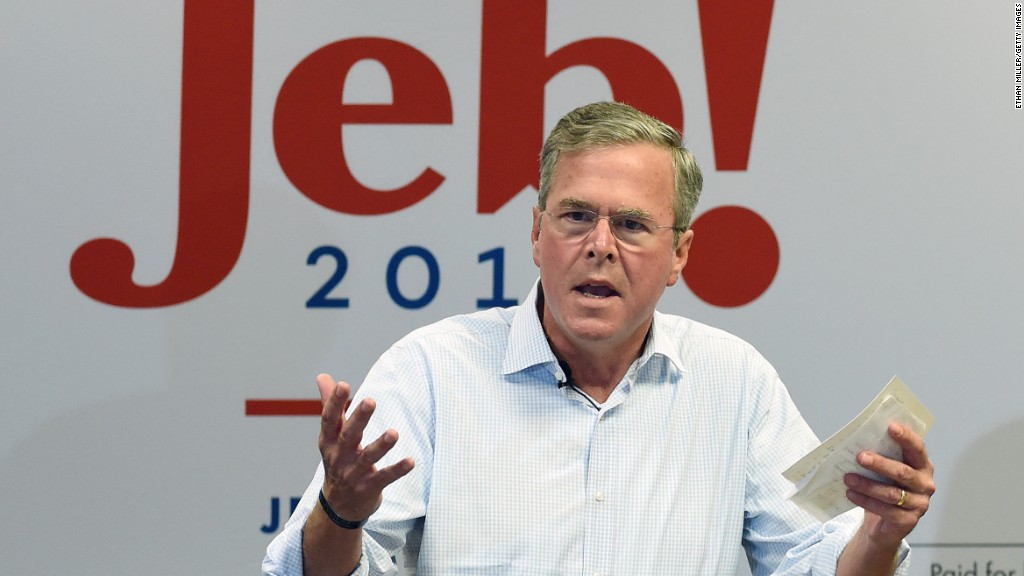
The Republicans came out firing Wednesday against two targets: The CNBC moderators they said were being biased, and the Obama economy that they slammed for being weak.
"The economy is not producing good jobs," Marco Rubio said. "That's what this debate needs to be about."
Republican candidates also blamed President Obama -- and Hillary Clinton and Bernie Sanders -- for an economy that is only working for the rich and powerful.
Here were five of the top claims during the debate.
1. Jeb Bush: "6 million more people live in poverty than when Obama was elected president"
True. According to the U.S. Census, 46.7 million Americans are living in poverty today. When Obama was elected, in 2008, there were 39.8 million Americans in poverty -- a difference of 6.9 million.
It would also be fair to look at Obama's first year in office, 2009. Then, there were 43.6 million people in poverty. From that point, there has been a gain of over 3 million.
2. Carly Fiorina: "92% of the jobs lost during Barack Obama's first term belonged to women"
False. This is an odd statistic that Fiorina also used in her Wall Street Journal op-ed earlier this week. When President Obama took office, there were 66.5 million women working in non-farm jobs. When he was sworn in for a second term in January 2013, there were 66.9 million women working in non-farm jobs. That's an increase of over 400,000 American females in jobs in his first term.
Fiorina seems to pull this stat from the old Mitt Romney 2012 playbook. At that time, many factchecking groups, including the Washington Post, debunked this claim.
The only way to get a number that's close to what she says is to pick very odd start and end dates such as starting in January 2009 and ending in March 2012. That's very arbitrary.
3. Fiorina and Mike Huckabee: "Wages have been stagnating for 40 years"
In the ballpark. The easiest way to look at this is median income. Last year, the typical American income was $53,657. That's almost exactly the same as 20 years ago. But it's a bit of a stretch to say it's the same as 40 years ago.
When you adjust for inflation, the median income in 1975 was $47,227, according to U.S. Census data. Weekly wage data shows a similar result.
4. Ted Cruz: "Today the top 1% earn a higher share of income than any year since 1928"
True. The two leading experts on income inequality are economists Emmanuel Saez and Thomas Piketty. Piketty wrote the book that became a surprise bestseller in 2014.
According to their data, the top 10% in America now have as great a share of income as they did in the 1928 -- the Roaring 20s era.
It's a similar trend for the top 1%, although their wealth might have peaked in 2007, just before the financial crisis whipped away some stock market gains for the mega rich.
5. Chris Christie: "71% of federal spending is on entitlements and debt service"
True. Christie and John Kasich have tried to make entitlement spending -- also known as Social Security and Medicare spending -- a key focus in the Republican debate.
The spending categories that constitute "entitlements" vary by source, but the Congressional Budget Office is seen as about as unbiased as one can get. They calculate that 68% of total spending in 2015 went to "mandatory and interest spending." By the time the next president takes office, in 2017, those categories are expected to reach 71% of the total federal budget.


